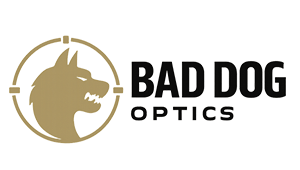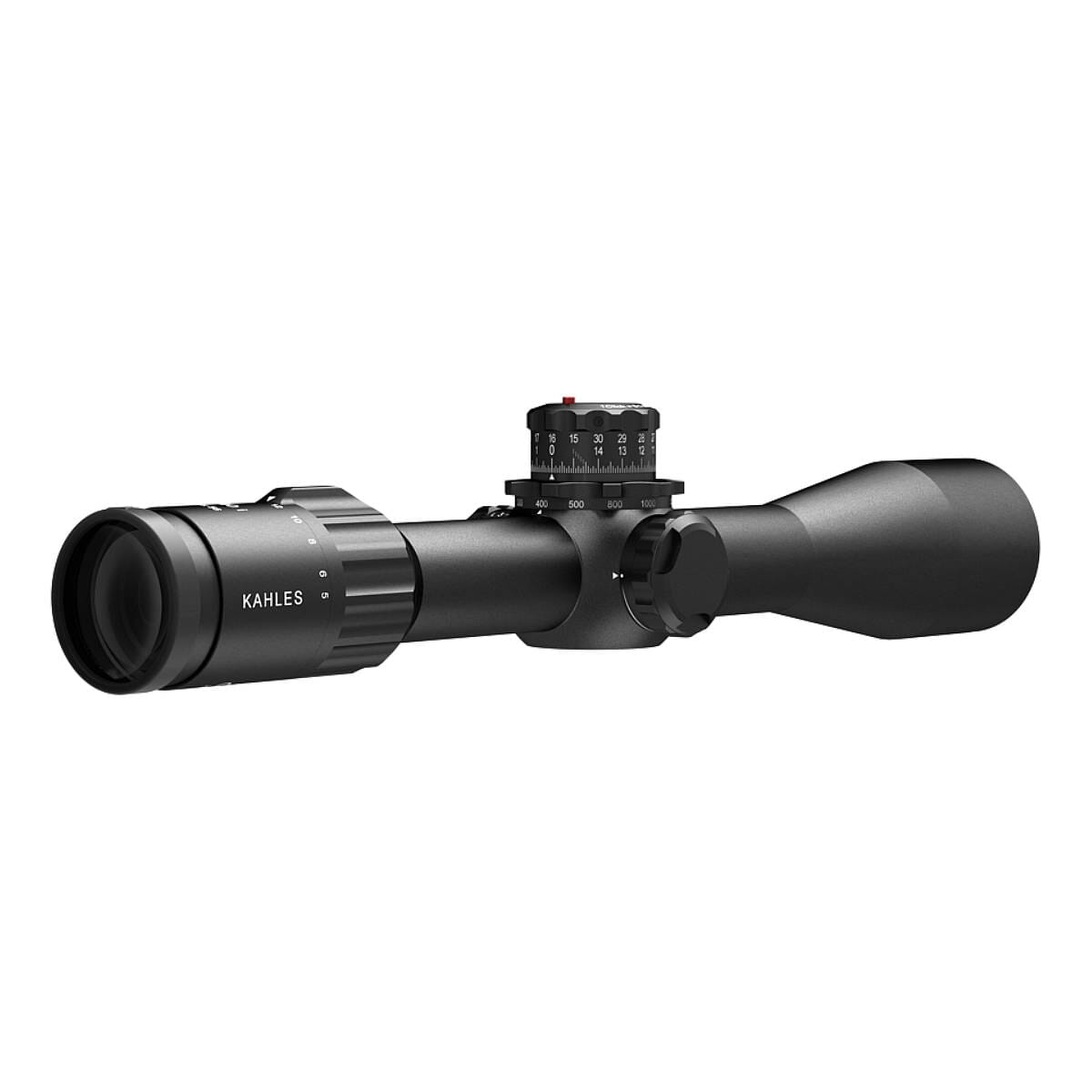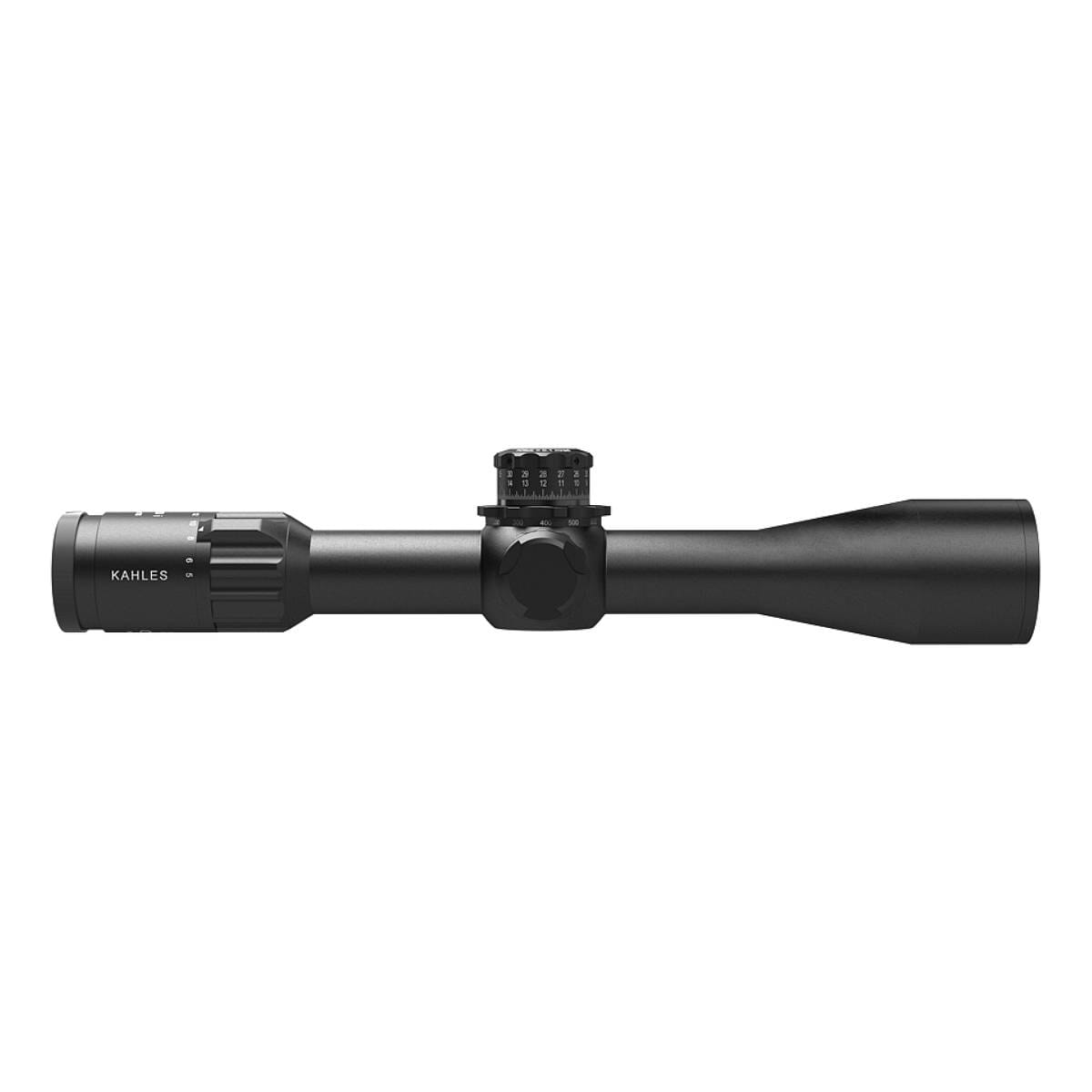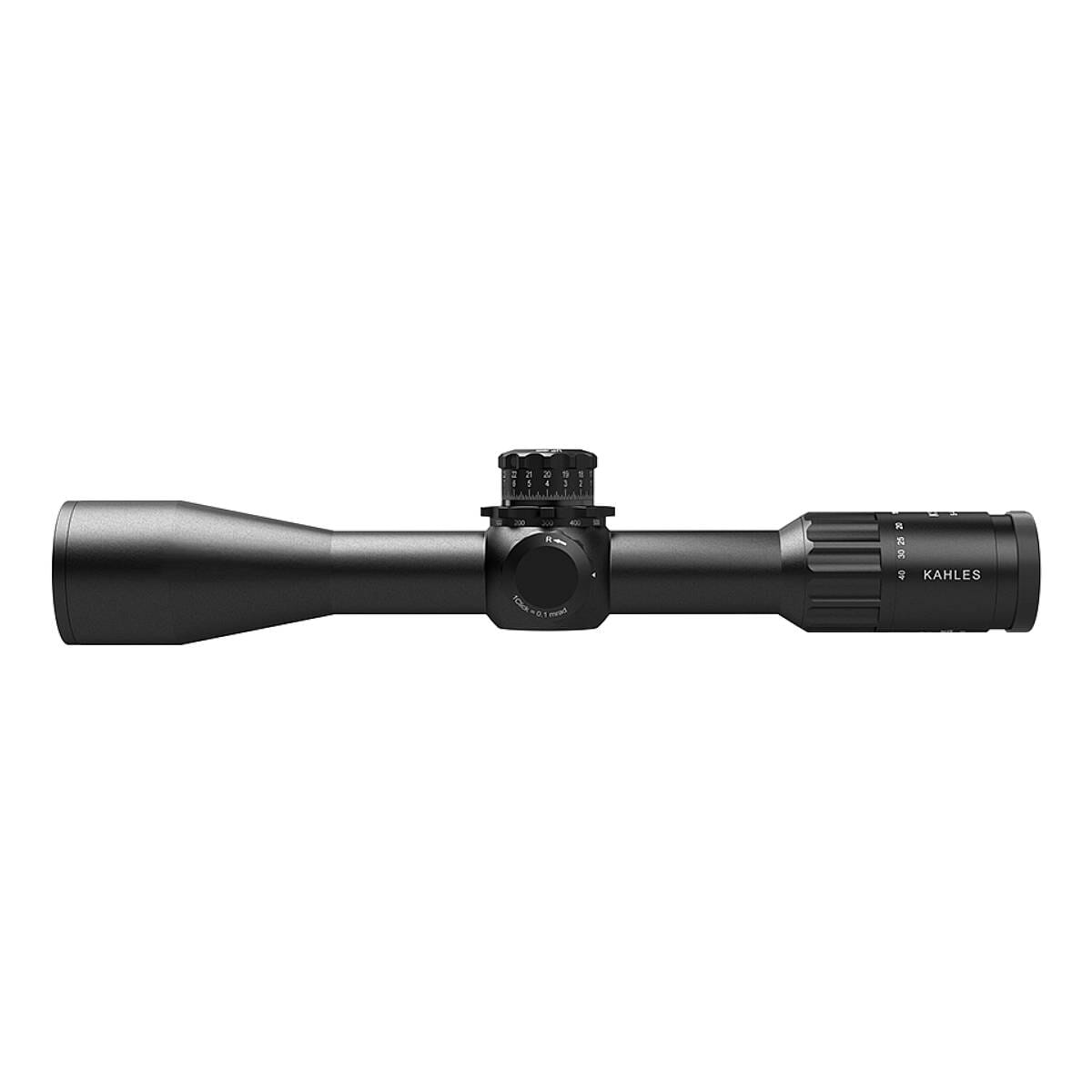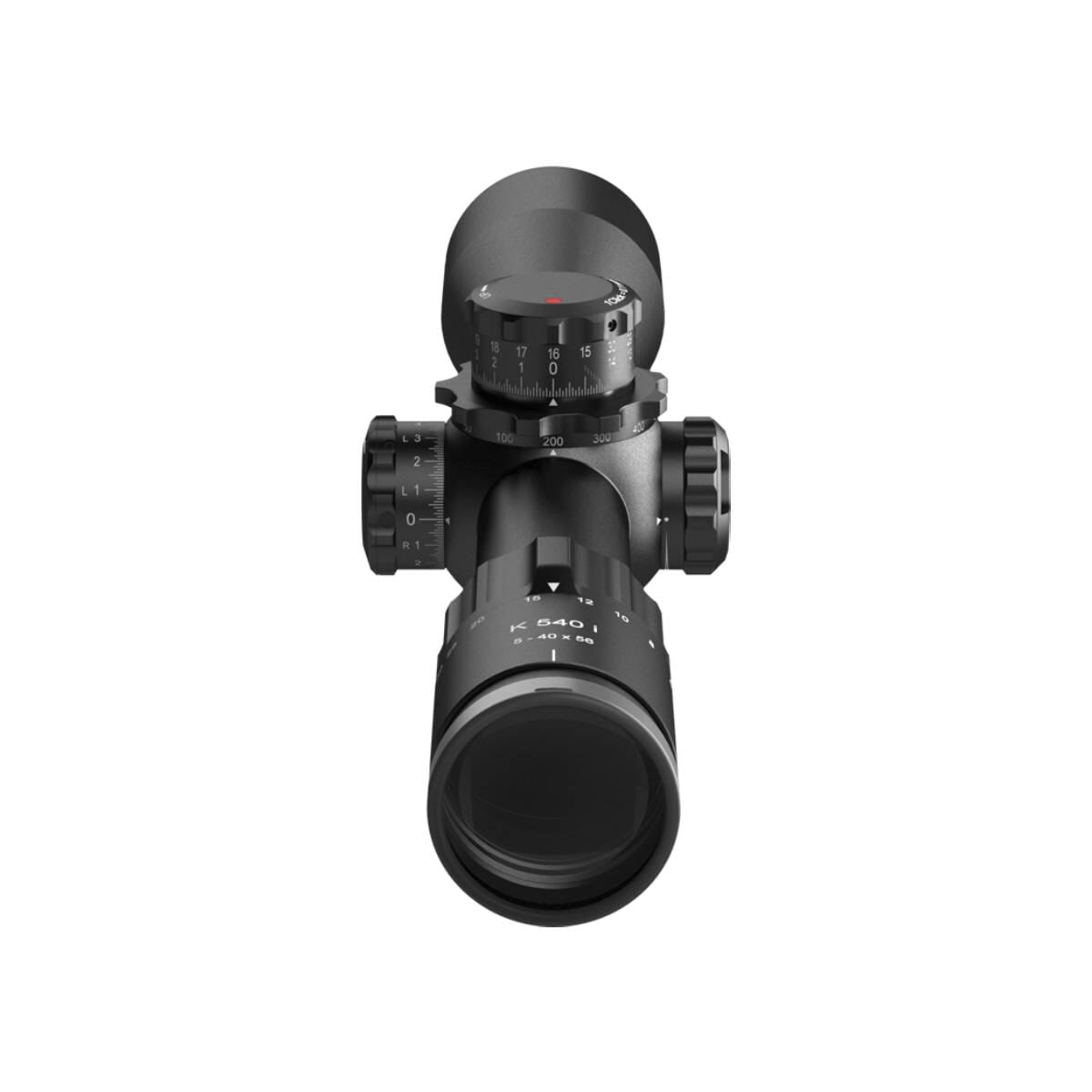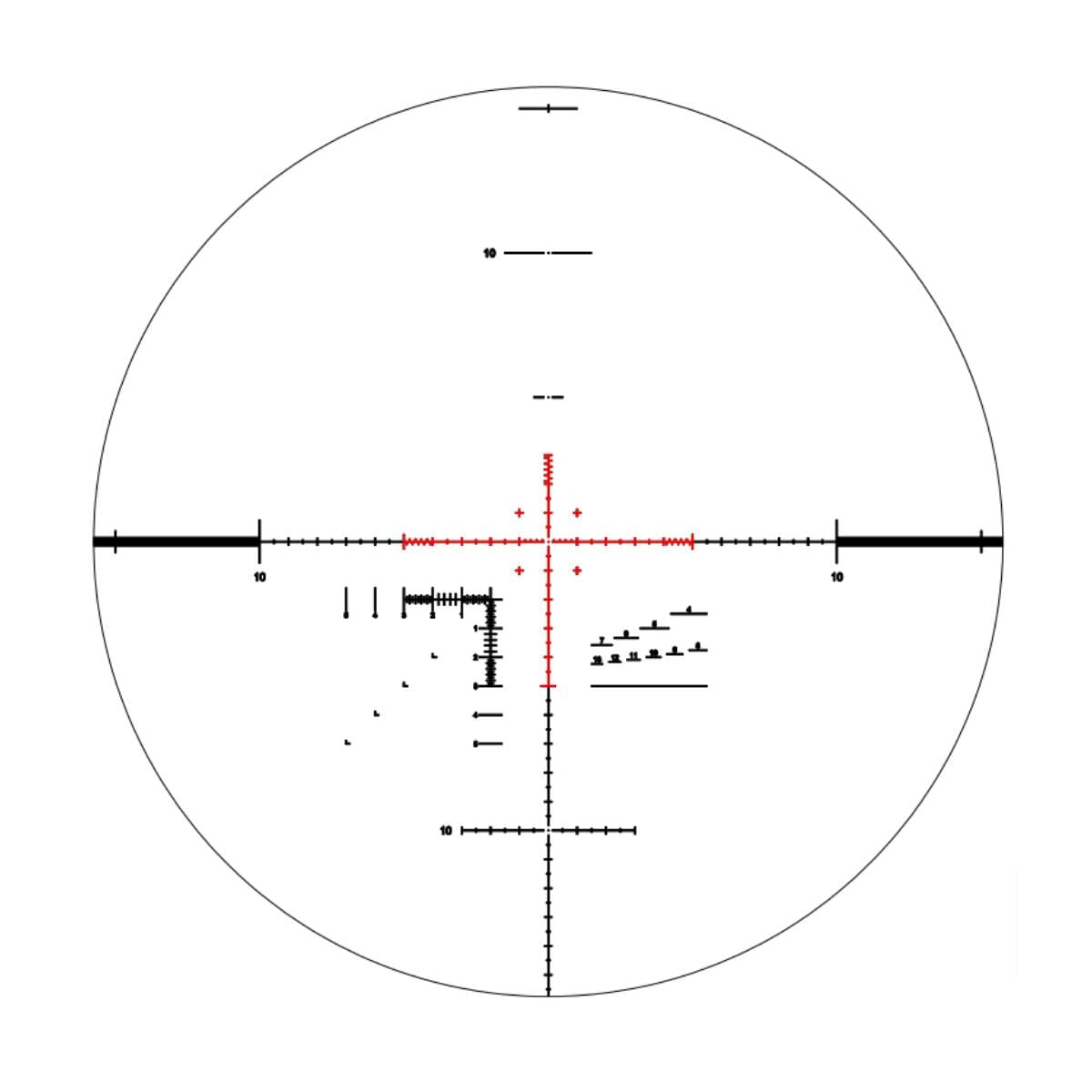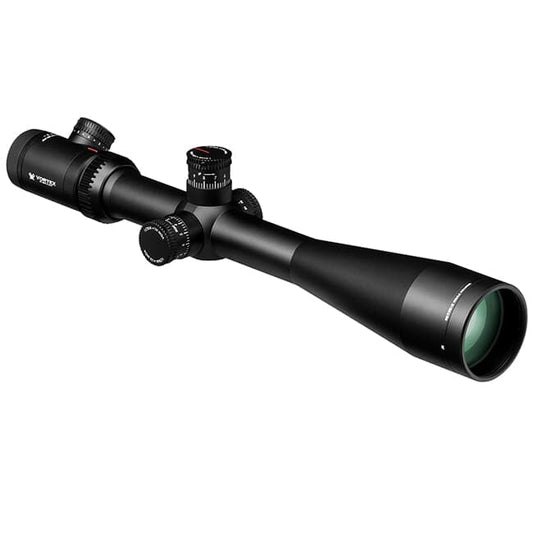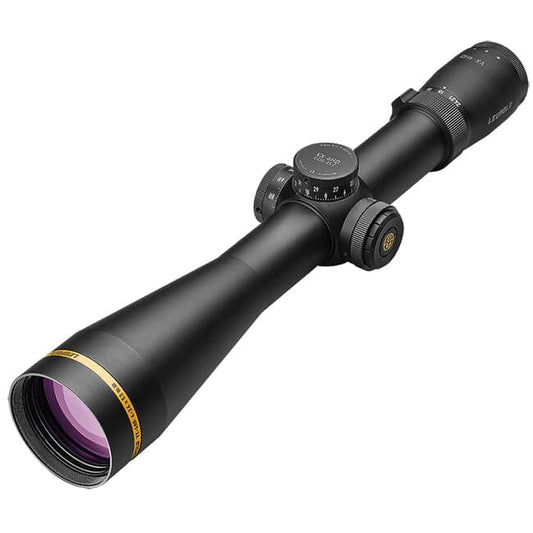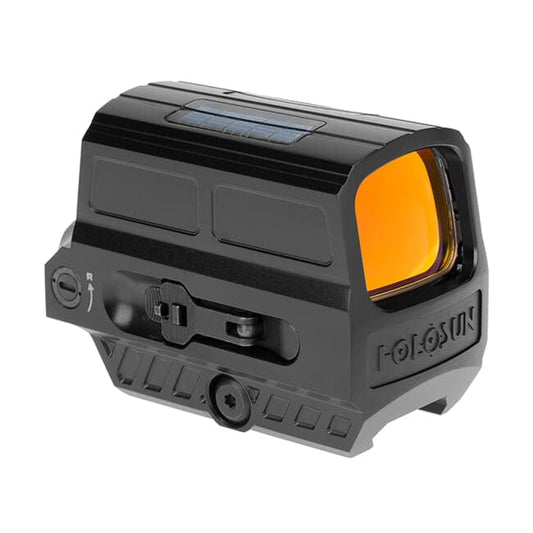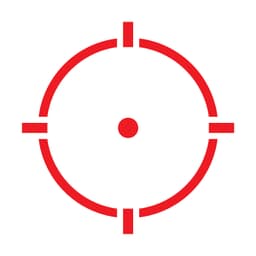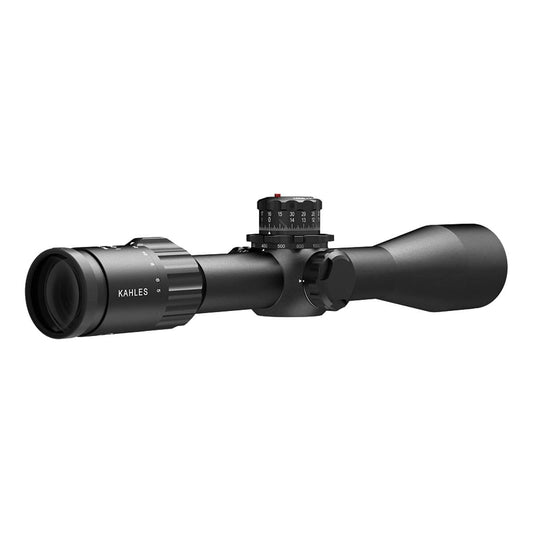

Kahles K540i 5-40x56mm MSR2/Ki CCW Riflescope offers precise functionality for long-range shooting. This first focal plane (FFP) scope features advanced optical technology, providing a remarkably wide field of view that enhances target acquisition. With 30.6 feet of visibility at 100 yards, spotting targets is more efficient, even in challenging conditions. The eyepiece design allows for comfortable viewing, eliminating strain during extended use, especially at high magnifications.
Engineered for serious shooters, the K540i includes an illuminated reticle, adjustable windage settings, and a patented parallax adjustment system for smooth focusing from 20 meters to infinity. The scope's durable construction ensures you can rely on it in rugged environments, while its lightweight design makes it easy to transport on long hunts. Trust in Kahles to deliver the performance you need without compromise.
Features:
- IMPROVED FIELD OF VIEW for faster target spotting, crucial for competitive shooting.
- COMFORTABLE EYEBOX that allows for quick target acquisition, even at maximum magnification.
- FLEXIBLE WINDAGE ADJUSTMENT offers options for both left and right, enhancing usability.
- ILLUMINATED RETICLE designed for low-light performance, ensuring visibility during dusk or dawn.
- SMOOTH PARALLAX ADJUSTMENT for precise focusing from 20m to infinity, improving overall accuracy.
- HIGH ACCURACY with 160 clicks per rotation, ensuring reliable and repeatable adjustments.
- RUGGED CONSTRUCTION built to withstand harsh environments, perfect for the field.
- LIGHTWEIGHT DESIGN weighing only 39.1 ounces, facilitating easy transport for extended hunts.
Technical Specifications Table
| Specification | Details |
|---|---|
| SKU | 10715-Kahles |
| Magnification Range | 5x - 40x |
| Objective Diameter | 56mm |
| Field of View | 30.6 feet @ 100 yards (low) / 3.9 feet @ 100 yards (high) |
| Weight | 39.1 ounces |
| Eye Relief | 3.62" |
| Reticle Position | First Focal Plane |
| Turret Adjustment | 0.1 MRAD per click |
What’s in the Box?
- Lens covers
- Padded case
- Neck strap
Customer Reviews
"The clarity and field of view are game-changers for my long-range shooting!" - Sarah T.
"Absolutely love the illuminated reticle; it performs perfectly in low light!" - Mike R.
FAQ
How does the K540i compare to other long-range optics?
This riflescope stands out with its enhanced field of view and superior optical clarity, offering a competitive edge in precision shooting. Its innovative features, such as the patented parallax adjustment, make it a preferred choice among serious shooters.
Is the K540i suitable for beginners?
Yes, the Kahles K540i is designed for ease of use with straightforward adjustments and a comfortable eyebox, making it an excellent option for novice shooters looking to improve their skills.
Similar Models
Looking for the perfect upgrade? Explore our extensive Kahles lineup, including the Kahles K318i for versatile performance and the Kahles K624i for exceptional clarity. Discover our full collection for unparalleled optics tailored to your shooting adventures!
You May Also Like
Here’s some of our most similar products people are buying. Click to discover trending style.
